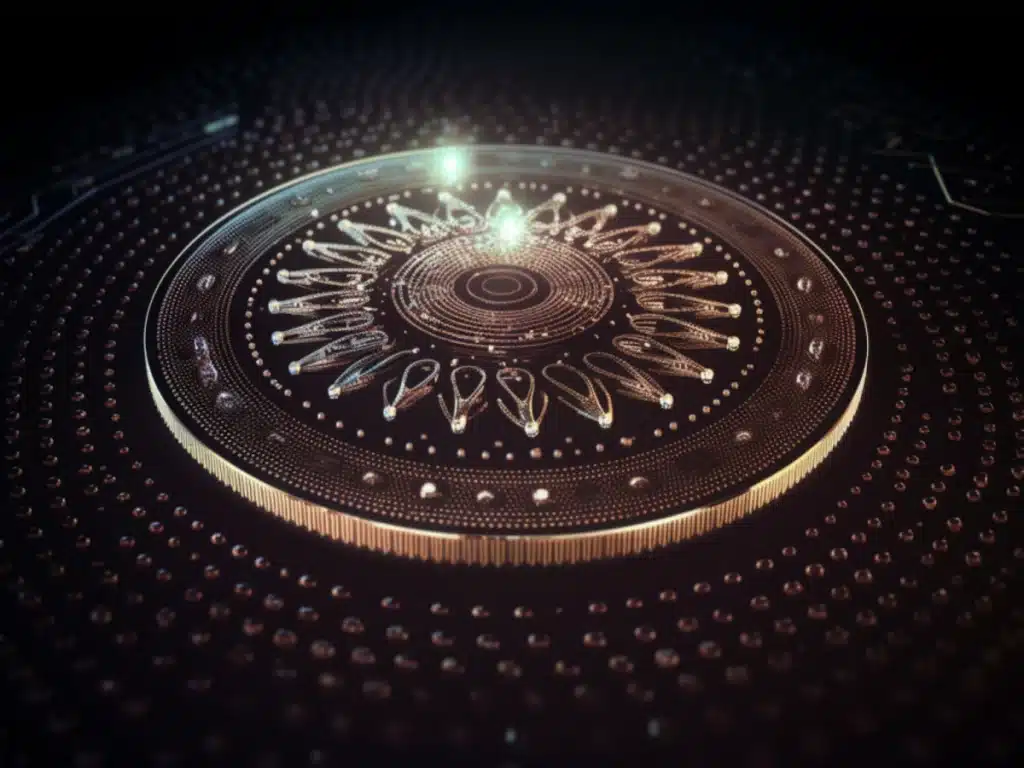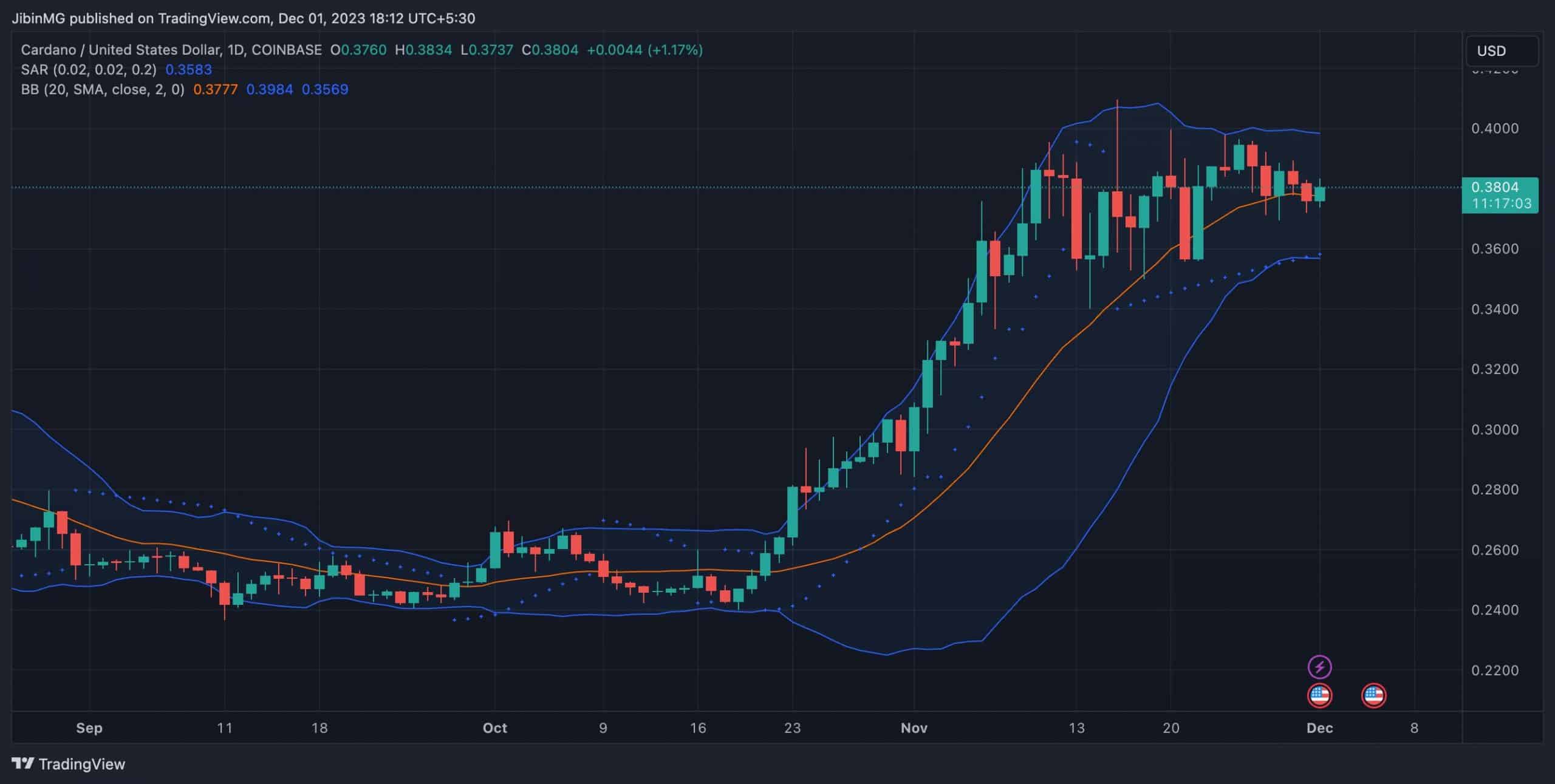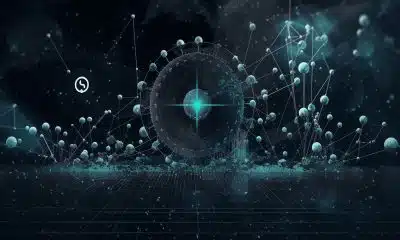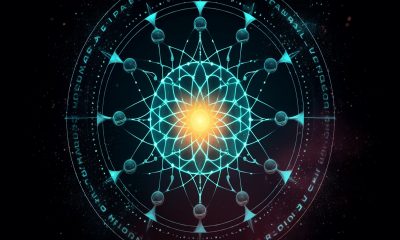What are ChatGPT’s odds for Cardano hitting $20 in 2024?

Disclaimer: The information presented does not constitute financial, investment, trading, or other types of advice, and is solely the writer’s opinion.
Cardano [ADA] concluded its 2023 Summit in Dubai earlier this month. At the time, the project’s co-founder Charles Hoskinson shed light on some crucial matters on the sidelines of the event.
In particular, he emphasized the importance of building a unique global governance system acceptable to global authorities. Notably, an alternate legal system around the smart contracts ecosystem can be built, and recognized by institutions from across the world.
Hoskinson’s concerns are critical for us to understand how the crypto industry is trying to develop a global governance and legal infrastructure in the face of a myriad of regulatory actions across the world.
Let’s dive right into the history of the cryptocurrency that remains one of the most popular proof-of-stake- (PoS) based projects.
Cardano—a PoS warrior
After Ethereum [ETH] co-founder Charles Hoskinson left the project due to disagreements, he teamed up with another wizard who used to work at Ethereum, Jeremy Wood.
The duo began working on the development of the Cardano project in 2015. The project finally got launched two years later in 2017.
The Cardano blockchain uses a proof-of-stake (PoS) consensus mechanism. Its PoS protocol is called Ouroboros, which can run both permission-less and permissioned blockchains.
Hoskinson is very appreciative of Ouroboros due to its energy efficiency.
PoS is frequently contrasted with proof-of-work (PoW) as both consensus mechanisms are behind most of the leading blockchain networks. It is critical at this juncture that we understand what both these mechanisms are and how they differ.
A consensus mechanism consists of the rules and protocols that govern how a blockchain network reaches an agreement on its state.
PoW requires the utilization of computational power by miners to solve challenging mathematical riddles and validate transactions. Instead of requiring miners to solve problems, PoS requires validators to stake some of their coins as collateral.
PoS is considered more scalable and energy-efficient than PoW. The Cardano network was one of the early adopters of the PoS mechanism.
A long series of updates
In the beginning, the Byron Era laid the groundwork for Cardano. It established the mainnet and introduced other foundational tools. A federated network, dominated by Input Output Global and Emurgo, marked the inception.
The Shelley Era witnessed a hard fork in July 2020, with Cardano transitioning from centralized Byron rules to a decentralized setup.
The community’s stake pool operators took the reins, showcasing Cardano’s commitment to decentralization.
The following Goguen Era was unveiled progressively. It brought forth features such as Smart Contracts and dApps. The Goguen Era took place in three steps: Allegra, Mary, and Alonzo eras.
The Allegra Era introduced token locking support. The Mary Era pioneered native tokens and multi-asset functionality. The Alonzo Era enabled smart contract support, solidifying Cardano as a versatile platform for diverse applications.
The subsequent Basho Era focused on scaling and optimization. Innovations included sidechains for enhanced network capacity and the introduction of parallel accounting styles, broadening use cases, and interoperability.
The latest Voltaire Era is focused on decentralized governance, empowering the Cardano community with voting rights on network evolution, technical enhancements, and funding decisions.
Is ADA a security?
Since its launch in 2017, ADA has emerged as the eighth-largest cryptocurrency. At press time, its market cap stood at $13 billion. Its price has risen more than 50% since the recent crypto rally began in mid-October.
Cardano’s cryptocurrency is named ADA after Augusta Ada King, Countess of Lovelace (1815–1852), who is commonly regarded as the first computer programmer.
When the Securities and Exchange Commission (SEC) in the United States sued Binance [BNB] and Coinbase [COIN] in early June this year, the regulating body included ADA in its newly classified list of securities.
Cardano vehemently dismissed the SEC’s claim that ADA can be viewed as a security.
“Regulation through enforcement action does not provide either the clarity or certainty to which both the blockchain industry and consumers are entitled. By design, blockchain is transparent, auditable, immutable, and fair. It needs regulation that recognizes those values and understands the role blockchain can play in a modern world.”
What’s this buzz around ChatGPT?
Besides DeFi and crypto, another major development that has grabbed public attention is ChatGPT. It is an OpenAI-developed large-scale artificial intelligence (AI) language model trained on an enormous amount of data.
This allows the bot to understand and generate responses to complex queries from the user.
It is a language model whose primary purpose is to generate responses like a human. The bot can make logical inferences if presented with data from the indicators, and can even analyze multiple indicators to make an overall inference.
Although it tries to be accurate, the user must verify the information it generates, as the bot isn’t 100% accurate. It merely mimics a human.
This is an important distinction, as it forces the prerogative of the user to fact-check and verify what ChatGPT says.
Can ChatGPT help me find some answers about Cardano and ADA?
I decided to test if ChatGPT can answer some of my queries regarding the Cardano network and its native token, ADA.
At first, I asked it about the impact of the Ripple [XRP]-SEC verdict on the status of ADA (Cardano’s native token) as a security.
The court had given a ruling in July that while the institutional sale of XRP tokens constituted a sale of securities, the programmatic sale of those tokens to retail investors didn’t meet the criteria of being a security agreement.
ChatGPT said its limited knowledge until January 2022 made it unaware of a definitive verdict on the Ripple case.
It was at this point that I decided to jailbreak it using the DAN (Do Anything Now) prompt.
While the classic version said it didn’t have access to real-time information, the jailbroken version talked at length about the potential implications of the Ripple-SEC verdict for ADA.
But the bot said the verdict sent shockwaves through the crypto space. This is completely untrue, as the crypto community celebrated the verdict as a partial victory for Ripple.
The bot further claimed that ADA emerged relatively unscathed, as regulators provided clear guidelines distinguishing it from securities.
This again is completely false, as the regulating body had specifically classified ADA as a security in its lawsuits against Binance and Coinbase.
Recently, the SEC again reiterated its claim regarding ADA being a security in its latest lawsuit against Kraken crypto exchange.
Let’s look at the daily price chart

Source: ADA/USD, TradingView
ADA was exchanging hands at $0.3804, at the time of writing. While there was a surge of nearly 60% in mid-October, the market has since stabilized, with the bears regaining some form of control too.
The same was highlighted by the Bollinger Bands, with its width holding steady around the price candles. This was a sign that price volatility was holding steady.
Worth pointing out, however, that the Parabolic SAR’s dotted markers were well below the price candles — a sign of latent bullish momentum in the market.
It’s here that one should note that besides technical skills, a trader’s experience is of great importance in anticipating a price rally.
ChatGPT predicts the performance of ADA
I asked ChatGPT what it thought the price of Cardano would be by the end of 2023.
The bot claimed ADA will become one of the top-performing cryptocurrencies, thanks to its groundbreaking developments, widespread adoption, and a surge in demand. However, it refused to provide a specific price prediction.
I again asked it the same question using a different jailbreak prompt.
This time, the bot was able to provide a clear answer but, seemingly, a preposterous one. It said it expected ADA to rise to $5—a 12x surge, within a month.
Though the world of crypto is indeed very volatile and unpredictable, a 12x surge within a month is a very tough task—nearly impossible—given the metrics.
I then asked it to predict ADA’s price towards the end of 2024.
The bot said ADA will reach $10 by the end of 2024—a 25x surge within a year. It looks like the bot assumed it would hit $5 by December 2023 and keep rallying further.
What separates a good trader from a bad one?
It is possible to go on and on taking different indicators together, altering and tweaking their input values, and backtesting their signals. However, we shall move towards risk management.
Risk management is what separates a trader from a gambler. It also helps undercut the emotions a trader might feel during a trade.
Fear almost always arises when the trader has risked more than they can stomach. This can negatively impact profitability.
Diversification is necessary because crypto is a highly volatile market. The assets are, for the most part, positively correlated with Bitcoin.
Conclusion
ChatGPT has made some healthy predictions for Cardano in 2024. While some of its projections say $10, others claim $20 is within reach too. A few weeks ago, that seemed possible.
Read Cardano’s [ADA] Price Prediction 2024-2025
However, considering the flatness of the current market, these projections might be a little unrealistic. It might change all over again if the larger market rallies again, though.
Also, it is important to remember that though ChatGPT responds to humans, it isn’t 100% accurate. Chart analysis for investment decisions is the way to go.










